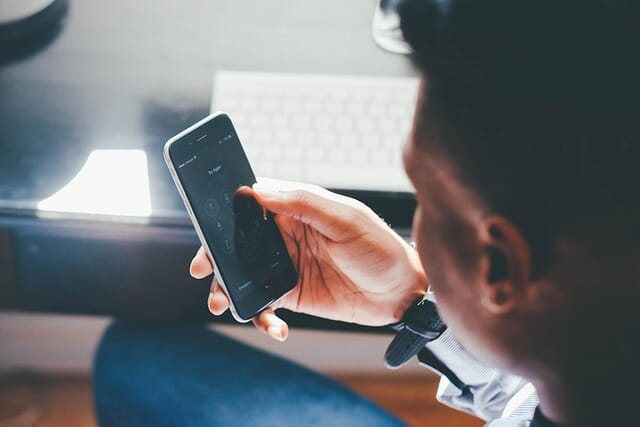
How Accurate Are Reverse Phone Lookups? A Detailed Analysis
Introduction
In our fast-paced, technology-driven world, we often find ourselves looking for quick solutions to everyday problems. One such challenge many face is identifying unknown phone numbers. Whether it’s a call from an unknown number or a persistent telemarketer, the curiosity to know who is behind that number is natural. This brings us to the fascinating domain of reverse phone lookups. But just how accurate are these reverse lookup tools? In this article, we will embark on an in-depth exploration of the accuracy of reverse phone lookups, dissecting their workings, benefits, limitations, and much more.
Understanding Reverse Phone Lookup
What Is a Reverse Phone Lookup?
At its core, a reverse phone lookup allows users to input a phone number and obtain information about the individual or business associated with that number. This service can be invaluable for various reasons—be it tracking down old friends, verifying contact details, or simply avoiding spam calls.
How Do Reverse Phone Lookup Tools Work?
Reverse lookup tools operate by accessing vast databases containing public records and private data compiled from various sources. These databases may include:

- Public Records: Information gathered from government databases.
- Social Media Profiles: Data scraped from social platforms where users have registered their phone numbers.
- User Contributions: Some services allow users to submit information about numbers they receive calls from.
By cross-referencing a given number against these databases, reverse lookup tools provide insights into the owner’s identity.
How Accurate Are Reverse Phone Lookups? A Detailed Analysis
Factors Influencing Accuracy
The accuracy of a reverse phone Reverse telephone lookup lookup depends on several factors:
Common Types of Numbers Identified
Reverse phone lookups can identify various types of numbers:
- Residential landlines
- Mobile phones
- Business lines
- VoIP services
Each type has its peculiarities regarding data accessibility and accuracy.
Benefits of Using Reverse Phone Lookup Tools
Identifying Unknown Callers
One of the most practical uses of reverse lookups is determining who’s calling you. This feature can help you avoid unwanted calls or scams effectively.
Verifying Contacts
Before returning a call from an unfamiliar number, using a reverse lookup tool can save you time and potential hassle.
Tracking Down Lost Contacts
Have you ever lost touch with someone but only have their old phone number? Reverse lookups could lead you back to them!
Limitations of Reverse Phone Lookups
Accuracy Issues with Mobile Numbers
While landlines tend to have reliable data attached to them, mobile numbers often present challenges. Many people change carriers frequently or use unlisted numbers.
Privacy Concerns
Not all personal information is publicly available due to privacy laws varying by region. This means some lookups may return limited or no information at all.
Outdated Information
As databases evolve, some entries might remain outdated. If an individual has recently changed their number or moved without updating records, the tool might yield inaccurate details.
How to Perform a Reverse Phone Lookup? Step-by-Step Guide
Popular Reverse Phone Lookup Tools Compared
| Tool Name | Cost | Database Size | Accuracy Rate | |-------------------|---------------|---------------|--------------------| | Whitepages | Free/Paid | Extensive | High | | TrueCaller | Free/Paid | Large | Medium | | Spokeo | Paid | Very Large | High | | AnyWho | Free | Moderate | Medium |
Real-Life Scenarios for Using Reverse Phone Lookups
Scenario 1: Avoiding Spam Calls
Imagine receiving daily calls from unknown numbers; using a reverse lookup can help identify telemarketers or robocalls so you can block them effectively.
Scenario 2: Reconnecting with Friends
Picture this: You receive a VOIP number lookup call from someone who seems familiar but can't remember their name! A quick search through a reverse lookup tool might revive old connections.
FAQs About Reverse Phone Lookups
Q1: Can I trust all reverse phone lookup tools? A1: Not all tools provide accurate information; it's best to use well-reviewed services known for reliability.
Q2: Are there free options available? A2: Yes! There are free services like AnyWho that provide basic information without charge but may have less comprehensive data than paid options.
Q3: What if I can't find any information on a number? A3: It could mean that the person has opted out of public listings or that it's an unregistered number altogether.
Q4: Can I perform a reverse phone search internationally? A4: Many tools do offer international searches; however, results may vary based on local privacy laws and database availability.
Q5: Is my personal info safe when using these services? A5: Always read privacy policies; reputable sites typically protect user data and do not sell it without consent.
Free reverse phone lookupQ6: How recent is the data provided in these reports? A6: The recency varies by provider; some update daily while others may take months for revisions based on new records coming in.
Conclusion
In conclusion, while reverse phone lookups offer an innovative solution for identifying unknown callers and reconnecting with lost contacts, their accuracy hinges on various factors ranging from database quality to privacy regulations. Understanding how these tools work empowers users to make informed decisions when utilizing them. So next time you're curious about an unknown caller—just remember how accurate are reverse phone lookups—you now hold valuable insight into making that determination!